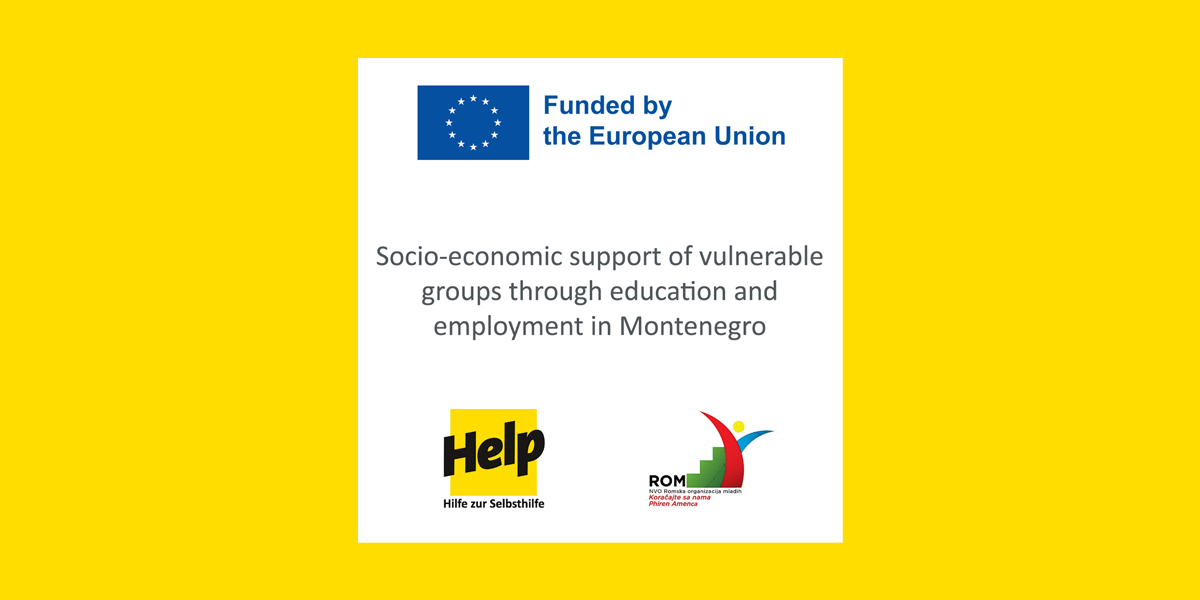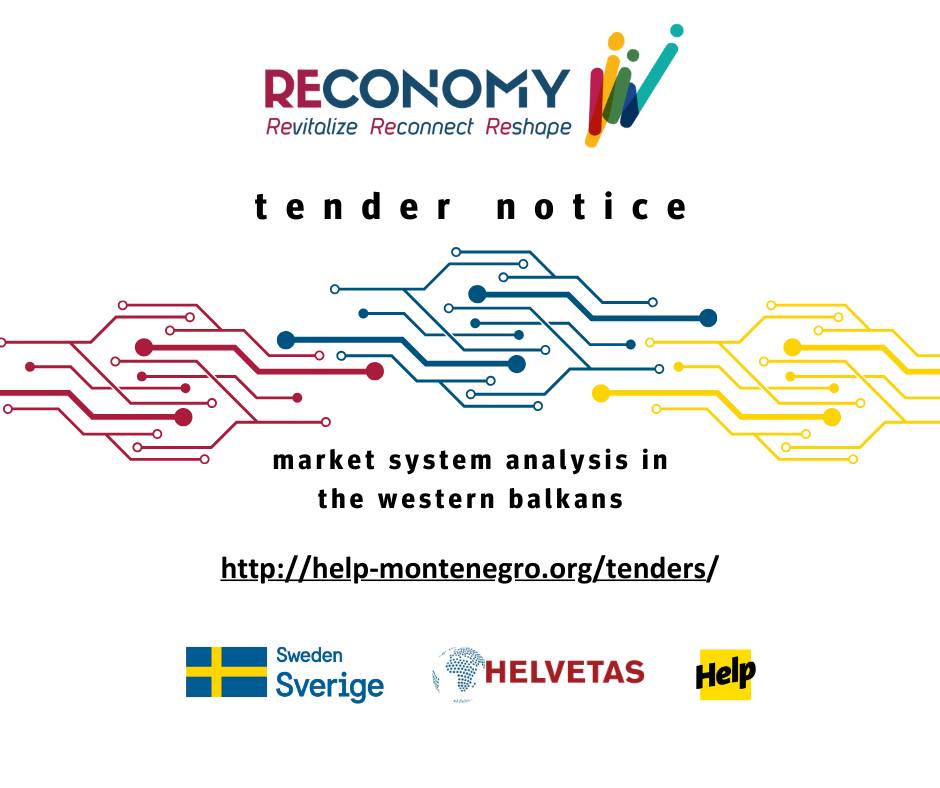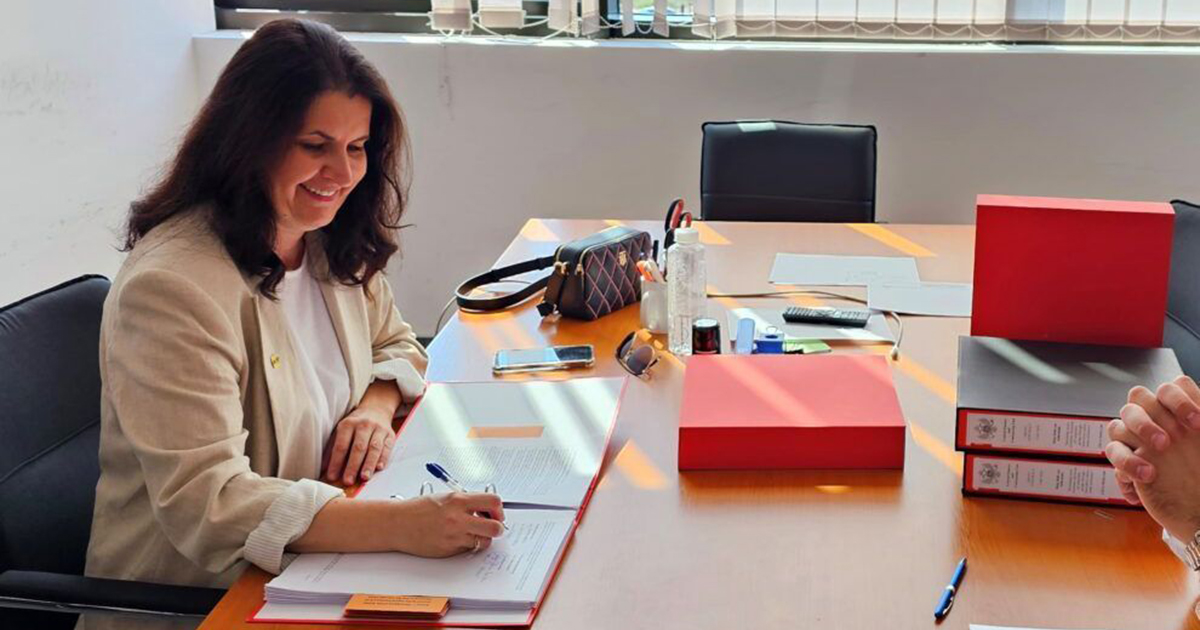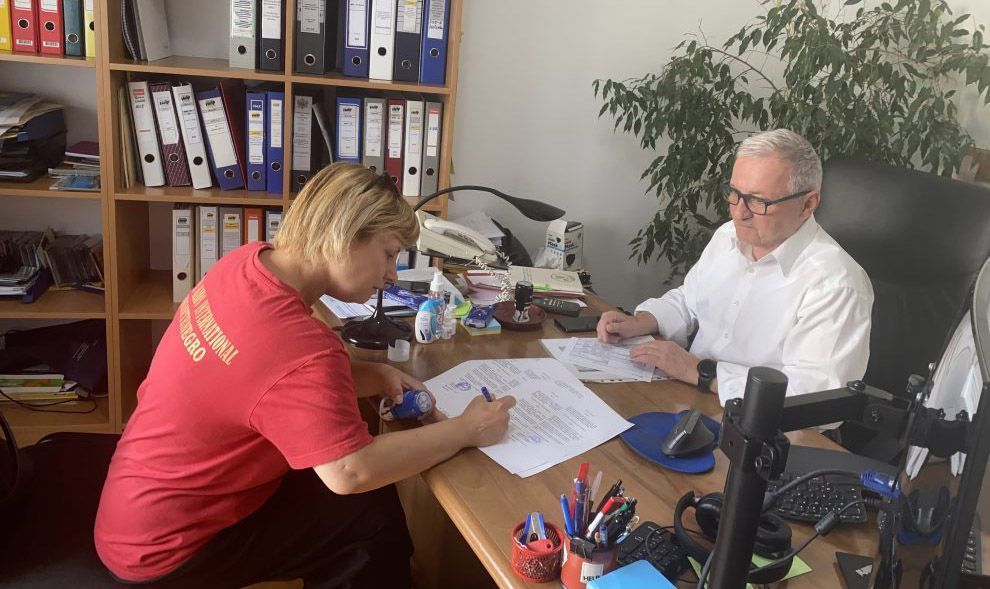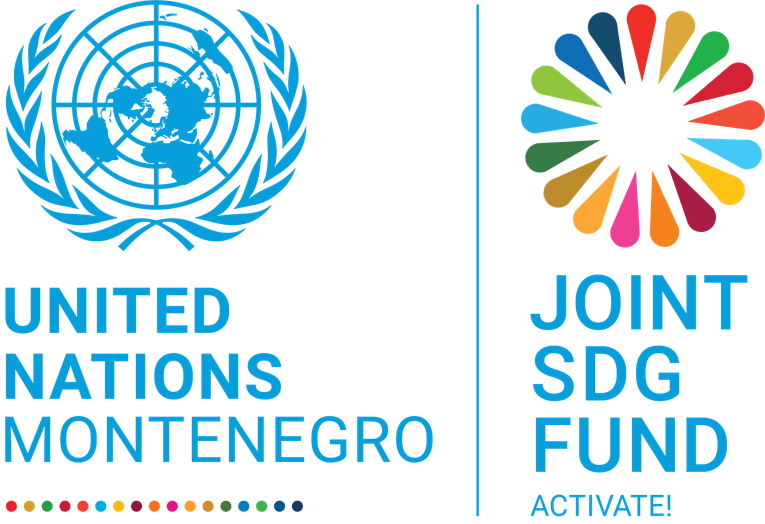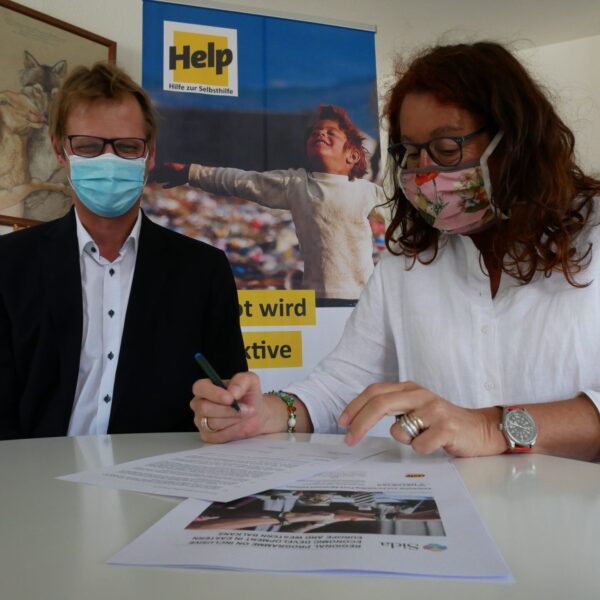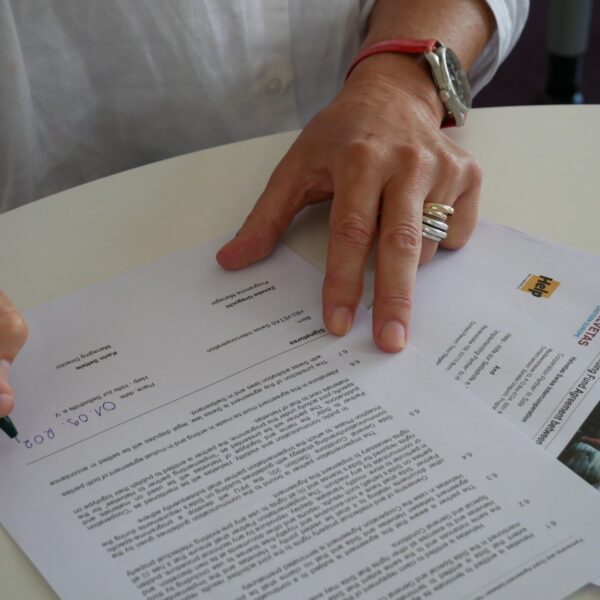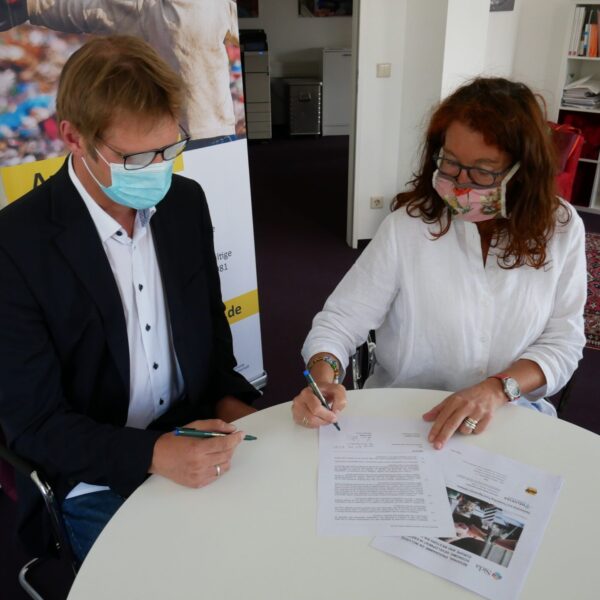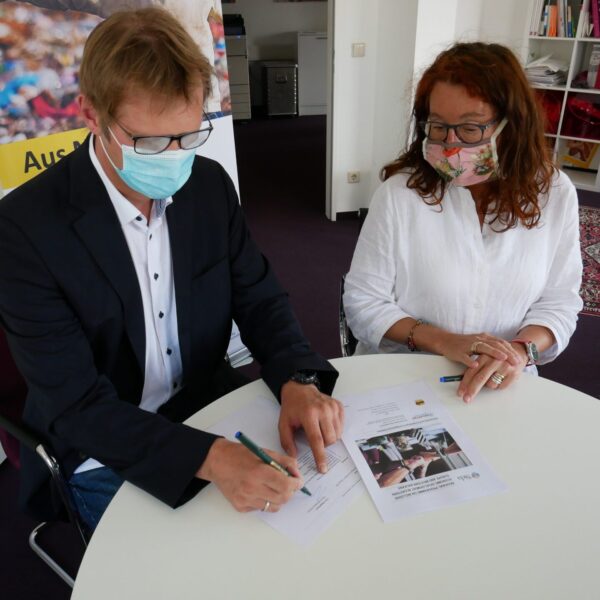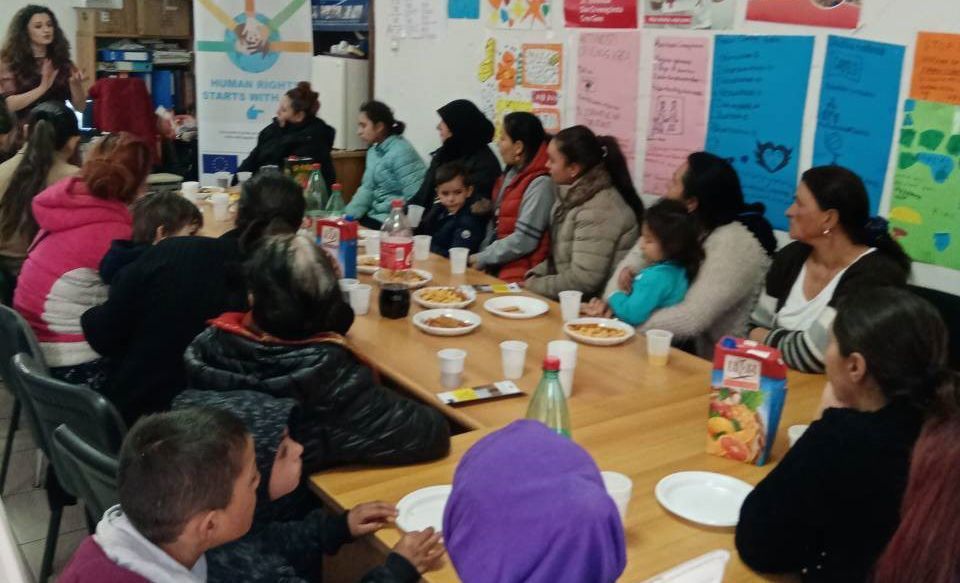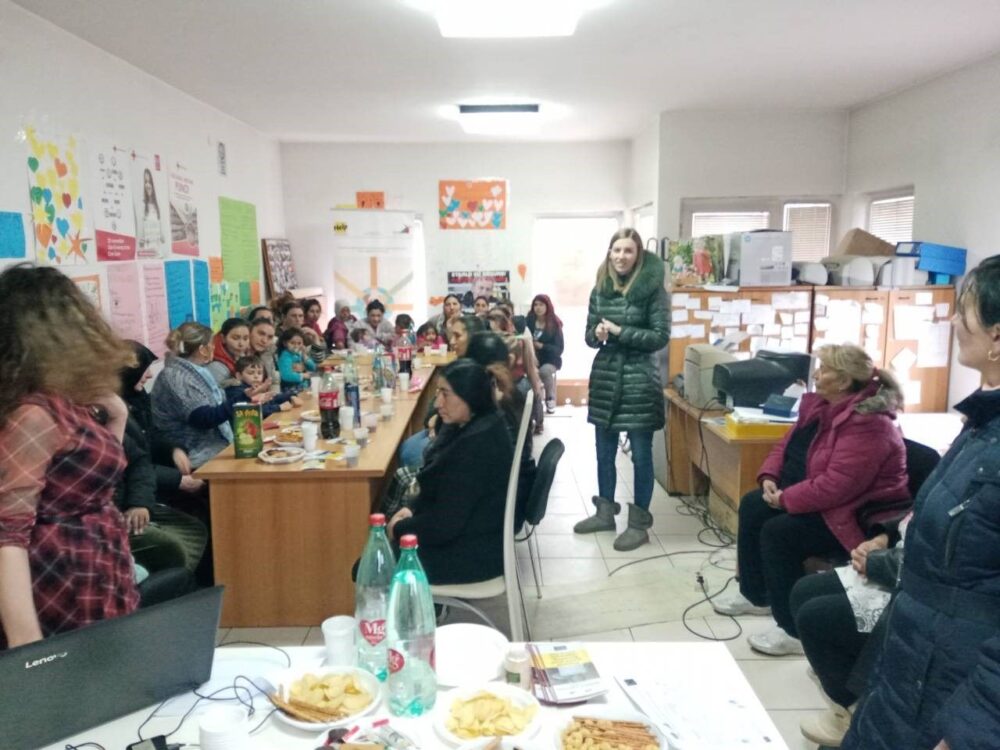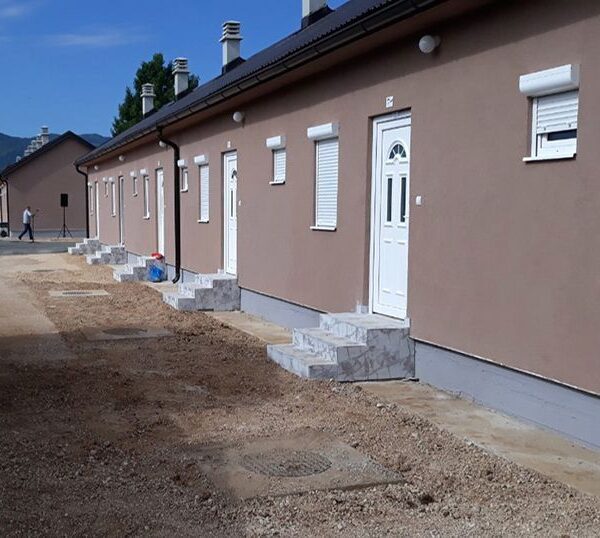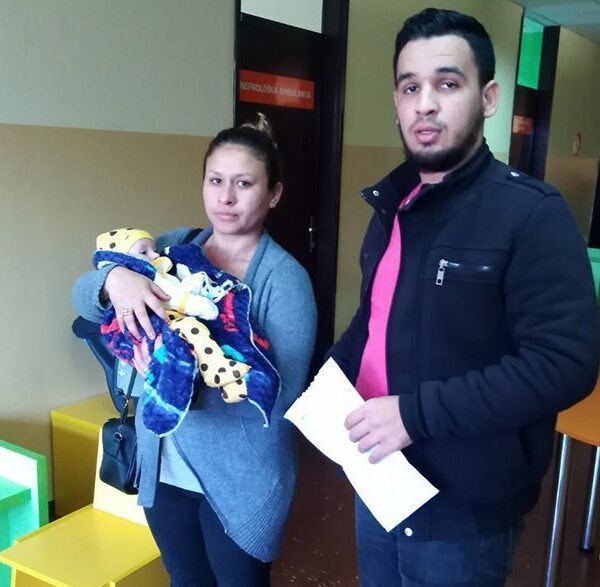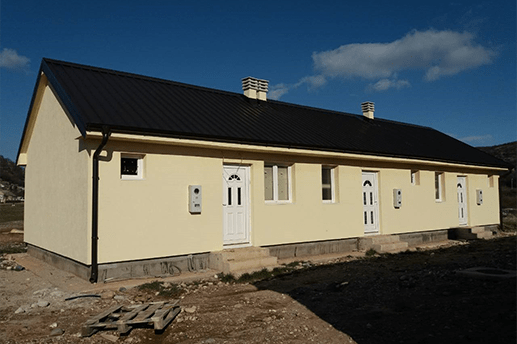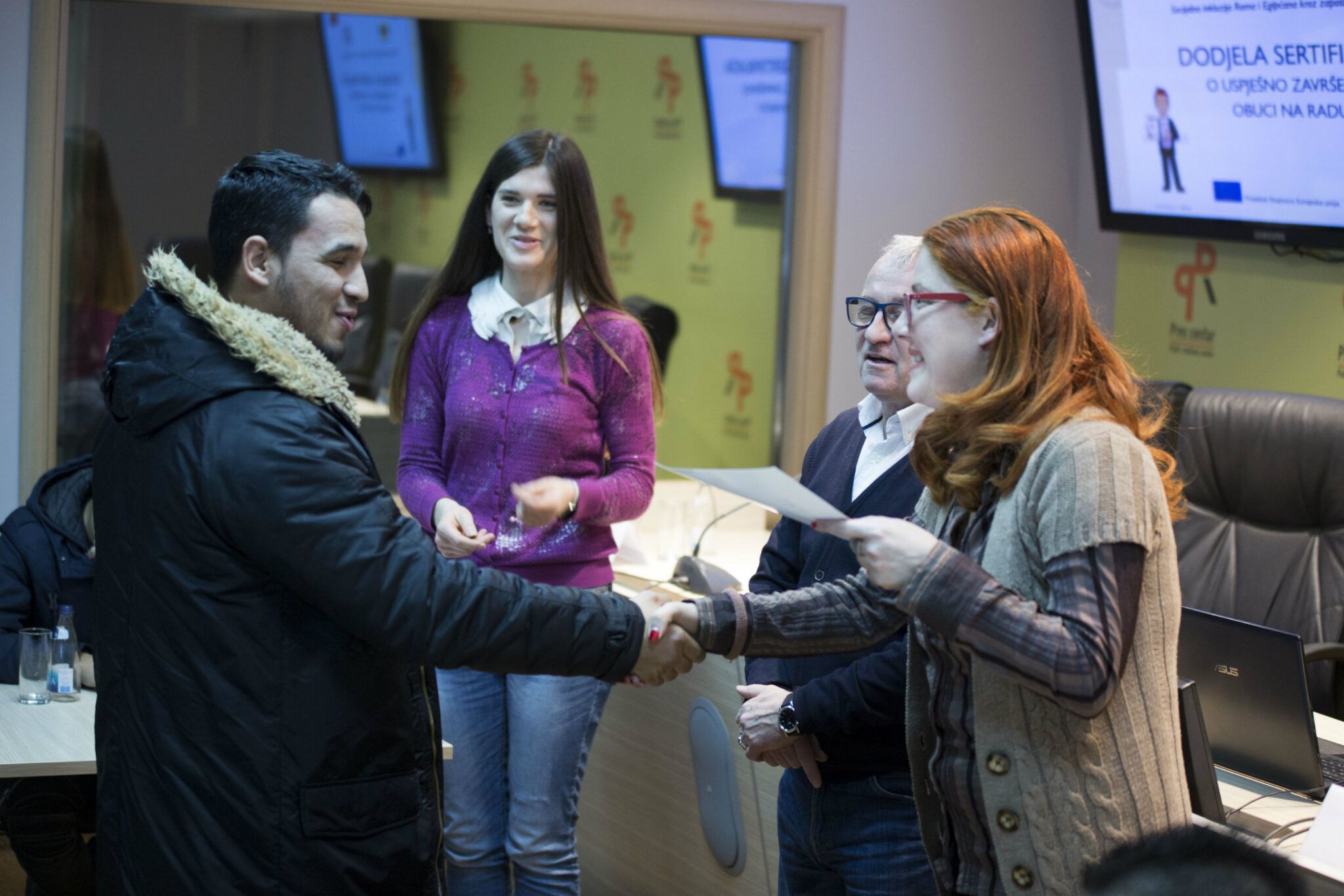:: PROJECT
Mon-88 Assistance Programme for the integration and return of RAE and other IDPs residing in the Konik area
:: DONOR
European Union, Government of Montenegro, REF, UNHCR, DRC
:: REALISATION / BUDGET
November 2012 – May 2014. :: 1.475.142.00 EUR
:: SHORT DESCRIPTION
Start of a new project for the benefit of the displaced RAE population in Konik, Podgorica
Help has signed a contract for the implementation of the project „Assistance programme for integration and return of RAE and other I/DPs residing in the Konik area” with the Delegation of the European Union to Montenegro and the Government of Montenegro.
The project will be implemented together with international and national project partners in order to provide the best skills for the successful support of the target group. The partners are the Danish Refugee Council, the Roma Education Fund from Hungary, and the local NGOs Green Home, Juventas and Legal Centre.
Under the terms of this project, RAE and other I/DPs living in Konik will be assisted to pursue their voluntary return to Kosovo and to improve the access to rights such as legal status, education, health and employment in order to enable full integration of those who opt to remain in Montenegro. Technical assistance will be provided for a Project Implementation Unit at governmental level that will co-ordinate, monitor and report all IPA project-related activities.
The total value of this project amounts to € 1.475.142. The project is funded jointly by the European Union with an amount of € 800.000, the Government of Montenegro with an amount of € 500.000, the Roma Education Fund from Budapest with an amount of € 101.350, the office of UNCHR in Montenegro with € 63.792 and the Danish Refugee Council with an amount of € 10.000.
The project will last for 18 months and it is expected that approximately 2.500 persons form the target group will benefit directly from the project.
***
Description of the proposed activities and their effectiveness:
1. Social integration: social integration will be promoted through interactive workshops addressing human rights, active citizenship and professional orientation, environmental protection issues and the like and regular meetings with RAE youth and adults and counseling sessions. Dance workshops for children and youth (both Roma and non-Roma) will be a venue to spend quality leisure time, develop talents of art, the self-esteem and social skills that will enable them to take a pro-active position in the civil society. These activities will be organized jointly with local NGO Juventas.
2.Provision of documents: Legal Center (LC) organizes bus visits to municipalities in Kosovo (Pec, Klina, Obilic, Kosovo polje, Vucitrn) in order to enable the most vulnerable members of RAE population obtaining personal documents (birth certificates, citizenship certificates, ID cards, passports and the like, as well as the subsequent registration into the birth/citizenship registries for those persons who were born in Kosovo). LC also provides counseling and representation before administrative and judicial bodies in Montenegro.
3. Education: The Roma Education Fund (REF) will undertake measures to improve academic achievements of pupils and reduce the language barrier for pupils who study in the branch department school and main building of elementary school Bozidar Vukovic Podgoricanin. REF will provide support and assistance to children in mastering social skills and knowledge as well as providing support in improvement of a greater level of self-confidence and the level of readiness for all future processes of integration, desegregation and socialization. In order to achieve this aim pedagogical practices and the preparation of future teachers for work in multicultural classes and school communities will be also provided. For each group of students’ volunteers one-day trainings will be organized and comprehensive supervision of their work with RAE pupils. The project team will organize additional classes to overcome children’s’ language barriers and will create conditions for enrolment in integrated schools through the provision of intensive community work, extracurricular activities, transportation, equipment, footwear, clothing, free books and cooperation with relevant institutions on local and government level.
4.Early childhood development: This program-component aims at improving the access to early childhood education and development for RAE children 1) within their families – by empowering and developing the capacities of the mothers, giving them opportunity to learn practical parenting skills and gain a better understanding of their child’s development and 2) within the formal education – by lobbying at local authorities for a higher level of inclusion and by encouraging and supporting RAE parents to enroll their children into pre-school. In a later phase Toy library is planned to be established and run.
5.Adult literacy classes: Literacy Program will be designed to empower RAE parents with literacy skills. The Program will have a special focus on women. Sub/component will be RAE women empowerment: Program activities will enable women in Konik Camp to take literacy classes, including health, human rights (especially women’s and children rights). The aim is to build the capacity of RAE women to lead their families and communities to increased well-being, including better health and higher incomes, through literacy, leadership and family health matters training. RAE mothers will be encouraged to be first teachers of their children and to support their children in schooling/education by developing positive parental attitudes towards education/schooling and by learning and practicing methods that foster child development.
6. Employment: support to income-generation activities has proven to be one of the best ways to enable the vulnerable population to sustain an acceptable standard of living based on their own resources, focusing on long-term solutions for the beneficiaries. Within this component, HELP has foreseen support to 80 RAE and I/DPs from the Konik settlement with sound business ideas, but insufficient own means for their implementation, to start up or develop existing economic activities in order to provide a regular income for their families. The assistance will consist of in-kind grants (equipment and/or material, livestock) with an average value of € 1,200 for starting up/improve or resume economic activities and basic business and vocational trainings and constant professional follow-up and advice.
7.Recycling and waste management: The local NGO Green Home will hold a number of workshops addressing various aspects of recycling including environmental protection, its potential as an income generating activity, needs of the RAE regarding waste disposal and recommendations to governmental institutions. In addition training will include preparing waste collectors for possible changes in the dynamics of the waste collection sector that may accompany campaigns for a cleaner environment and governmental legislation. Through these workshops they will also be informed on the recycling without using adverse methods and making irreversible changes in the nature, because this is very often seen situation. Also, impacts of landfills on human health and dangers due to the improper waste separation and disposal will be themes of the workshops.
8. Health: Help has already engaged a social worker who among other performs duties typically carried out by Roma Health Mediators. She together with 2 Roma assistants will be trained in the full range of Roma Health Mediators and will then provide services that lead to improved access of RAE to the health system in Montenegro. Roma Health Mediators will also work on health promotion (healthy life styles, reproductive health, mental health, chronic noninfectious disease and infectious diseases) through health sessions. RHM would facilitate the communication between the medical personnel and the Roma community, representing a cross-cultural bridge with role in conflict prevention.This would contribute to better communication between local community and Roma and their integration, and the RHM would present real social agents. This part of a program has gender dimension, since RHM would be female, which would have influence on empowering women and undermine prevailing perceptions about appropriate women’s role.
9. RAE teaching assistants and training sessiond for teachers: In-service training program will be provided to the teachers and a model for RAE Teaching Assistants training and ToR will be designed and developed; Trainers will be chosen based on their experiences in working on similar projects related to the inclusion of Roma into mainstream schools and kindergarten. Monitoring of their activities will be organized and conducted to ensure clearly defined roles and functions of RAE teaching assistants/mediators.
10. Good practices exchanging: 1. Regular meetings will be held among RAE Teaching Assistants and teachers to exchange their own experiences and to improve further engagement with RAE children, their families and institutions. 2. Success stories could be recorded (story telling – interesting for ECED) as well as put in the written form in order to present the experience to other countries. 3. REF partners from neighbouring countries (Roma Decade countries) will present experience and methods in working with RAE/Roma population
11. Return activities: This Action will pursue adequate return solutions for those RAE families who are interested in this durable solution. Specifically, DRC will organise the participation of approximately 340 RAE displaced in 29 cross-border events, including Go-and-See Visits and other return initiatives, through which the displaced will be provided with first-hand information and will be enabled to directly participate in the return process. If the families’ durable solution decision is to return to Kosovo, DRC will actively work on trying to facilitate their return to Kosovo, by referring them to Authorities in Kosovo (MCR and Municipalities) and Reconstruction Agencies working in the area. According to recent DRC assessment in Konik area, through this Action DRC will focus on facilitating the return to Kosovo for at least 50 families through referral for reconstruction and advocacy; upon needs assessment, transport facilitation and basic return assistance might be provided to the returnee families, provided they will not be receiving the same assistance by the Kosovo projects.
12. Technical Assistance to Project Implementation Unit: The Government of Montenegro invested considerable resources in addressing the issues pertaining to the RE population. The two main strategies being the National Strategy for durable solutions of issues regarding displaced and internally displaced persons in Montenegro, with special emphasis on the Konik area and the strategy for improving the position of Roma and Egyptians in Montenegro 2012-2016 provide the framework on how these issues will be addressed and the Ministry of Labour and Social Welfare has been entrusted with their coordination and implementation.
The PIU established in the context of this institutional framework is expected to fill the gap between the policies and strategies and projects. The implementation however involves the Ministries such as Education and Sports, Health, Housing, Human and Minority Rights, the Bureau for the Care of the Refugees, the Montenegrin Employment Agency, the Municipalities, donors, organisations such as UNHCR and NGOs as well as representatives of the RAE community.
In order to address the challenges arising from the involvement of such diverse stakeholders an approach which fosters the establishment of horizontal and vertical partnerships will be promoted. The Action is an important element in the establishment of permanent structures for the institutions to manage and coordinate their policies and programmes. It is crucial to streamline the policies developing a clear vision and mandate for the PIU in promoting durable and sustainable solutions. The management structure will be developed and once the roles and responsibilities are clarified, considerable training will be provided to the members of the PIU and the key decision makers in programme and project management, PCM, monitoring and evaluation, and financial reporting with emphasis on on-the-job-training. Throughout the programme, the members of the PIU will be assisted in fulfilling their responsibilities and during the closing phase it will be ensured that the handing.
